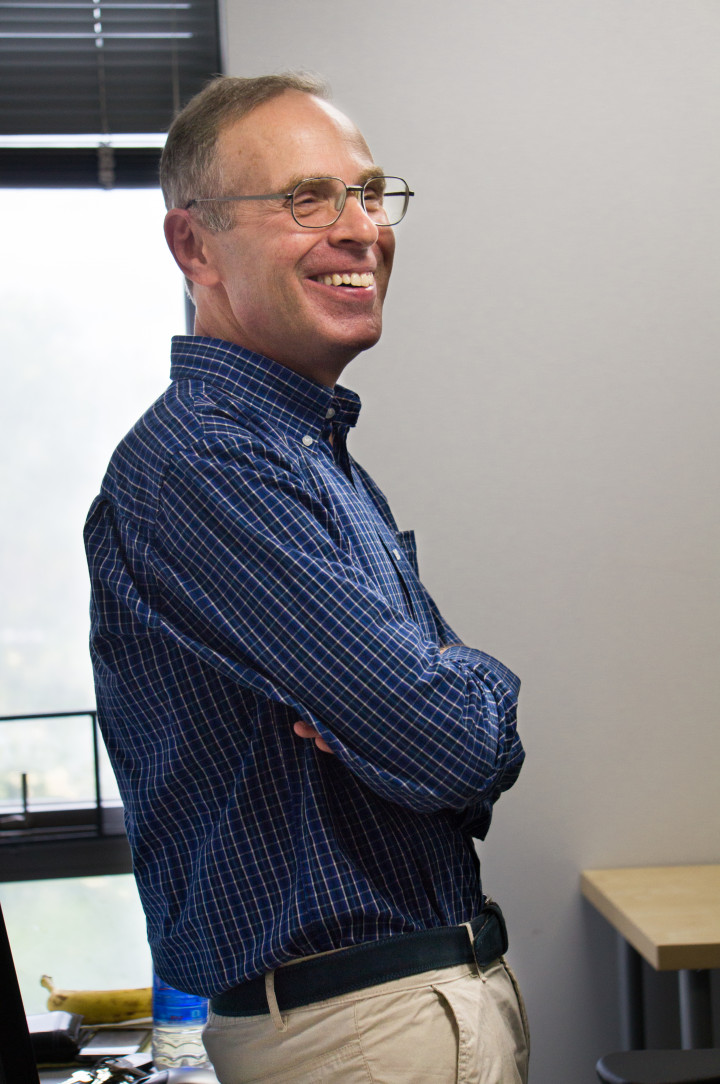Rich Gerber Directs New Office of Student Enrichment
The computer science department added a new office over the summer. The Office of Student Enrichment, directed by University of Pennsylvania alum and ex-associate professor at Maryland Rich Gerber, is a boon for students looking to get involved. For now, its physical presence is no more than Gerber’s own office, but it has already reached dozens of passionate undergraduates.
When I talked to Gerber, he was in middle of his first major initiative: furnishing the first dedicated hacker-maker space inside the Computer Science Instructional Center. Despite the meteoric rise in the popularity of hackathons, where students from many universities come together for a weekend of non-stop tinkering, coding, and innovation, the University of Maryland did not, until recently, even have plans for this type of space to exist year-round. The current plan, as Gerber envisions it, will take over CSIC 3107, throwing away the desks in favor of movable tables and chairs to foster collaboration. Along the walls, Gerber wants to fill shelves with Raspberry Pis, Arduinos, and other electronics that students can use as part of their projects. “We have the funding,” Gerber says. “I want to get everybody, anyone with curiosity [involved].”
Gerber is also the new liaison for computer science undergraduates looking to study abroad. In the past, students have found it difficult to study abroad without delaying their graduation, since most introductory computer science classes cannot be taken abroad, and it has never been clear how to first find appropriate courses to take abroad and then get them approved by the department. Now, Gerber is something of a one-stop shop for study abroad advising. “I’m trying to change the culture to encourage it rather than discourage it,” he says. He has already pushed the department to approve certain courses at the University of Edinburgh in Scotland and the University of New South Wales in Australia, including an equivalent of Maryland’s famously difficult operating systems course, CMSC412. While students should still stay on campus to fulfill the lower level requirements, there is now an ever growing list of ways to take computer science 400 levels in other countries.
For students who want to stay closer to home, Gerber can help connect interested undergraduates to faculty members looking for research assistants. Many professors will work not only with upperclassmen, but sophomores and occasionally even freshmen, so Gerber encourages anyone with the drive and interest to be a part of research to reach out. While it may not always be possible to find a placement, it has never been easier to reach out.
To talk to Mr. Gerber about opportunities to study abroad, conduct research, or get involved in the hacker-maker community on campus, send him an email at rich [-at-] cs [dot] umd [dot] edu. You can also feel free to come by his office in A.V. Williams, room 4135.
The Department welcomes comments, suggestions and corrections. Send email to editor [-at-] cs [dot] umd [dot] edu.
